Maritime Agencies
COMTUA, AWAEMAP CRY OUT: NPA MD Is Grounding Nigerian Exports, Sending Us Out Of Business.
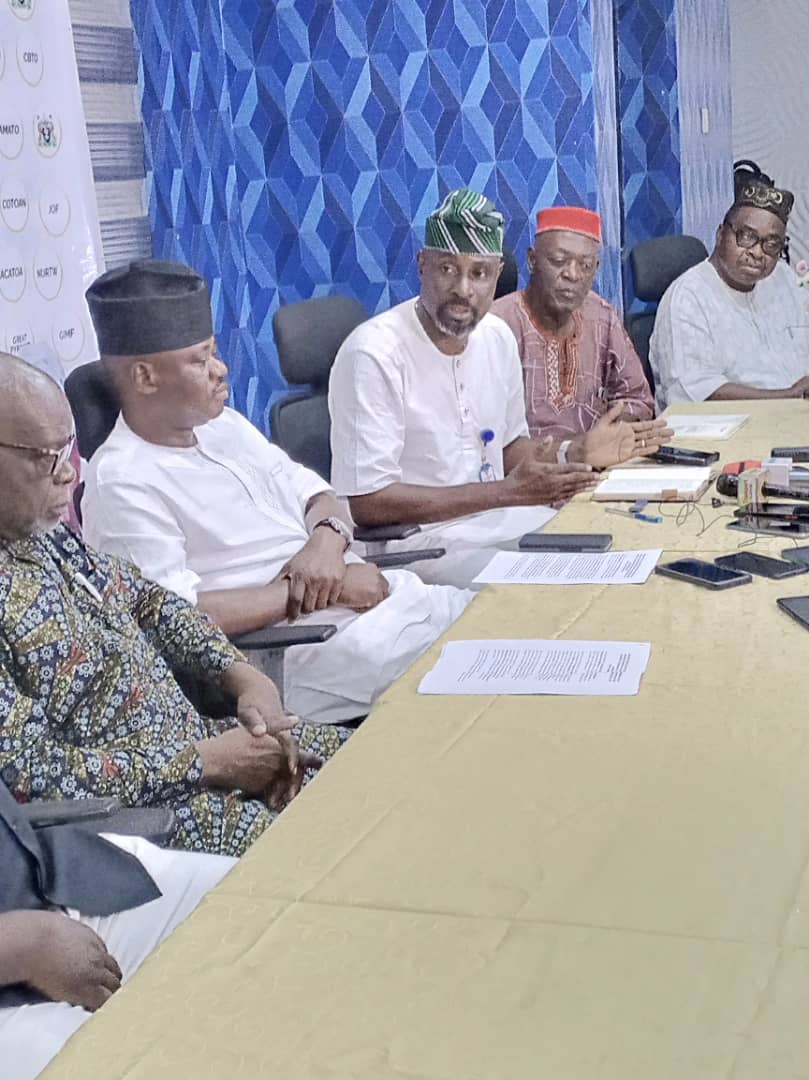
By Izuchukwu Ozoemena
The Association of West African Exporters and Maritime Professionals (AWAEMAP) has raised the alarm, accusing the Managing Director of the Nigerian Ports Authority (NPA) Mr Mohamed Bello-Koko of strangulating them out of the nation’s agro export-processing industry to give room for him and his cronies to corner undeserved retirement businesses for themselves.
AWAEMAP brought this to light at a press conference it organized in Lagos, Thursday, in conjunction with the Conference of Maritime Truck Unions and Associations (COMTUA).
Speaking at the event, AWAEMAP President, Bunmi Olumekun, alleged that the NPA Managing Director has unilaterally chosen five out of many Export Processing Terminals (EPT) to process agro exports. Sadly, two of these belong to Lebanese with whom he has joint hidden interests.
AWAEMAP is worried that the NPA MD seeks to introduce a new Standard Operating System to establish one-stop terminal for agro export containers.
“These terminals referred to as Domestic Export Warehouse (DEW) are meant to serve the purpose of a one-stop shop for all government regulatory agencies to process all agro export containers and also serve as the only pre-gate terminals for all agro export container boxes seeking access into Apapa Port and all other port complexes in Nigeria for onward shipment to various destinations across the globe”.
The body stated that the measure by the NPA would have received applause if going for the five warehouses as being arranged would serve to complement the already- existing licensed customs warehouses scattered all over Nigeria.
“Rather, the decision is to refuse entry into Nigerian ports all over the country any agro bound container that has not made use of these warehouses.”
Condemning the decision of the NPA MD on this matter, the Association said by designating only five warehouses where export-bound containers would be accepted for getting-in, he has contravened the Customs & Excise Management Act, (CEMA), CAP 84 Laws of the Federation of Nigeria 1990, especially Part IV, Section 82 which clearly makes provisions for the use of licensed warehouses including private warehouses for the purpose of processing export-bound goods.
“This decision is being enabled by the MD of NPA to ensure he continues to enrich himself even after his tenure at the helms of NPA comes to an end.
“The NPA MD who has disclosed and undisclosed interest in these warehouses has decided that for his ulterior motive to come to light, he must likewise destroy the Nigerian economy while at the same time increasing the unemployment rate of Nigerians. We understand that out of the five warehouses being introduced, two are owned and operated by foreign entities.”
The consequence of implementing the policy, AWAEMAP regretted, is that all the existing Licensed/FPIS warehouses used, owned and managed by her members nationwide would become useless.
“These DEW which are limited in number would be overrun by thousands of agro-export containers, thereby creating another round of congestion in and around the ports environment.”
“This policy will take the export industry several years back after all the improvement and achievements recorded since the introduction and implementation of the Electronic Call-up System through the Eto mobile App.”
It warned that if Bello Koko is allowed to implement what it described as a repugnant policy, it will wipe off improvements and sanity being witnessed in Apapa ports. It will also increase the overall cost of exporting agro commodities in Nigeria.
“Invariably, our exportation prowess will decrease as exporters will be forced to sell at a loss as the international rates of exportable cash crops takes no cognizance of the exorbitant cost of exportations of our country due to the greed of a select few.”
AWAEMAP insists that with the introduction of this policy, exporters would be forced to pay for handling charge, weighbridge documentation and examination position fee. Others impositions are trucking to ports and storage charges cumulatively amounting to about $650 extra charges per container box.
“All these charges listed would have been incurred by exporters prior to accessing this DEW invariably leads to double expenditure for exporters.
Currently, agro-export containers departing Benin and other neighbouring countries come at a cost of $200 cheaper than exporting same value agro export container box from any port within Nigeria following numerous regulatory and logistic challenges prevalent in the maritime export industry.
The body condemned the situation whereby her members are being subjected to hardship, finding it hard to survive as they compete with neighbouring countries.
It stressed the need to condemn and prevent the actions of the NPA MD in this matter “as the ripple effect of this policy will cut across all spheres of the Nigerian economy”.
Even though business is free, Bunmi Olumekun observed, “but we can’t be subjected to the whims and caprices of NPA MD’s cronies.”
He beckoned on Nigerians to intervene and help them because of the damage PFP is doing to the system.
In his contribution, the Boat Chairman, Alhaji Ina-Olaji Nofiu Liadi recalled that processing a container in NPA’s so-called five warehouses costs an exporter not less than N120,000. Other constraints, he stated, are unbearable bank charges coupled with expenses on the Eto system. He regretted that this cannot be regulated.
“Our case is on terminal export processing of goods whereby goods already processed are to go through same process in their so-called five terminals.
He said they had gone to court to interpret reasons processed export goods must undergo fresh processing to satisfy NPA MD and his cronies who run the five terminals in question.
Speaking on behalf of his group, Comrade Adeyinka Aroyewun, President, Conference of Maritime Truck Unions Associations (COMTUA) was emphatic that NPA’s agenda was to keep truck owners out of business and to expose them to what he called stiff competition with foreigners now in the picture.
“We’re rejecting the export-processing terminals. Why should we go through NPA whose poor management acts led to ports concession? NPA does not meet with any stakeholder in the transportation industry. He queried the TTP, insisting that terminal operators reject containers due to scarcity of information on the terminals by the NPA, a reason trucks remain on the road despite Eto.
“There is a racket between NPA and TTP Ltd. We’re rejecting NPA’s involvement in cargo handling. Extortion is NPA’s aim, provision of jobs to NPA’s cronies through whom they corner money and chase is out of business.”
COMTUA beckoned on the Nigerian Shippers’ Council (NSC) to intervene and use her good offices as the economic regulator to discourage the attitude of business grabbing being exhibited by the NPA.
COMTUA warned that the Federal Government should not allow anybody discourage her in the interest to grow export of goods from Nigeria.
Efforts to get the NPA side of the matter before publication were unsuccessful as calls to relevant units were not responded to.
Maritime Agencies
Customs Bans Stemming of Containers of Pharmaceutical Products To Bonded Terminals, Hands Over N9.2bn Illegal Importations To NAFDAC
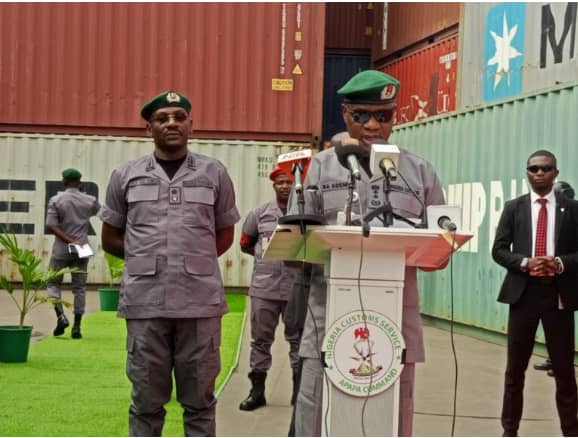
By Izuchukwu Ozoemena
Going forward, the Nigeria Customs Service has placed an indefinite ban on the stemming of containers of pharmaceutical products to bonded terminals. This is official.
Customs Controller-General, Bashir Adewale Adeniyi announced this in Lagos, Friday, in response to what he referred to as abuses and trade illegalities being perpetrated by offdock facilities.
”We will no longer allow stemming vessels down into offdock facilities. We can allow any other thing but because of the sensitive nature of pharmaceutical products and because of the abuse to which this concession has been subjected in the past, they will only be allowed or cleared in these four designated places: Apapa Port (right inside the port), Onne Port, PTML and at the International Airport. We’ll no longer allow them to be taken into bonded terminals.”
The Controller-General who was in Apapa to hand over 25 containers of unregistered and prohibited pharmaceutical products with a Duty Paid Value (DPV) of N9.2 billion to the National Agency for Food and Drug Administration and Control (NAFDAC) declared the aim of the restriction. This is to curtail the abuse by bonded terminal operators, many of whom have been implicated in the seizure of fake and unwholesome drugs.
CGC Adeniyi described the seizure of pharmaceutical products as a direct fallout of the strategic Memorandum of Understanding with NAFDAC and the inauguration of the implementation committee between the two bodies in November 2024.
Explaining the Service’s position regarding current licensing fees, he stated that the current licensing fees for bonded terminals in operation stand to be reviewed as they no longer align with current realities, haven been in place for about a decade.
”The increase in the fee of the license has to be such that it will be difficult or impossible for those who are not serious to own and operate a bonded terminal.
”So, we are already in the process of reviewing the license fee. We will carry the stakeholders along and do things that will reflect current situations”.
He acknowledged the role inter-agency collaboration and intelligence-sharing have continued to play in enforcement.
This enhanced cooperation has delivered measurable results in protecting public health and discouraging illicit trade.
”The MOU framework enables Customs and NAFDAC to conduct coordinated operations and joint investigations, systematically tracing illicit pharmaceutical sources and deploying targeted enforcement strategies against criminal networks”.
A rundown of the contents of the
21 forty-foot containers and 4 twenty-foot containers of counterfeit and dangerous pharmaceutical reveals unregistered sexual enhancement drugs like REDSUN and HYEGRA among others.
There are also codeine-containing cough syrups (including CSC brands), antibiotic injections such as oxytetracycline and artesunate, pain relief medications containing diclofenac sodium and paracetamol.
Also included are skin-lightening creams, hip and breast enlargement products and
numerous tablets bearing fake NAFDAC registration numbers. Expired food products, veterinary medications and antimalarial drugs also featured.
“The Nigeria Customs Service, in partnership with NAFDAC and the NDLEA remains uncompromisingly committed to the battle against merchants of death who pursue illicit profits from businesses that destroy lives and communities,” Adeniyi stressed.
“This MOU- facilitated coordination enables swift responses to emerging threats, and I commend the Director-General and her dedicated team whose technical expertise, combined with our enforcement capabilities, has created a formidable barrier against criminal networks seeking to compromise our borders”.
“Under the coordination of the Office of the National Security Adviser, our joint operations have resulted in the seizure of over 200 containers followed by coordinated destruction exercises, with unregistered pharmaceutical products comprising 63.7% of seizure values, highlighting the scale of threats that could have inflicted devastating damage on human lives and our social ecosystem if permitted to infiltrate our markets,” he stated.
Adeniyi who emphasized that the Service has significantly enhanced her intelligence network and technological capabilities to detect and seize unwholesome goods warned all stakeholders including haulage operators, bonded terminal owners, or any other international trade facilitator that anyone implicated in illegality stands to face the full force of the law as there are no sacred cows.
He commended commended officers and men at the Apapa Port Command for being vigilant and professional in their duties.
Maritime Agencies
Lekki Deepsea Port Set To Clinch 500,000 TEUs, Becomes Trans-shipment Hub In West Africa
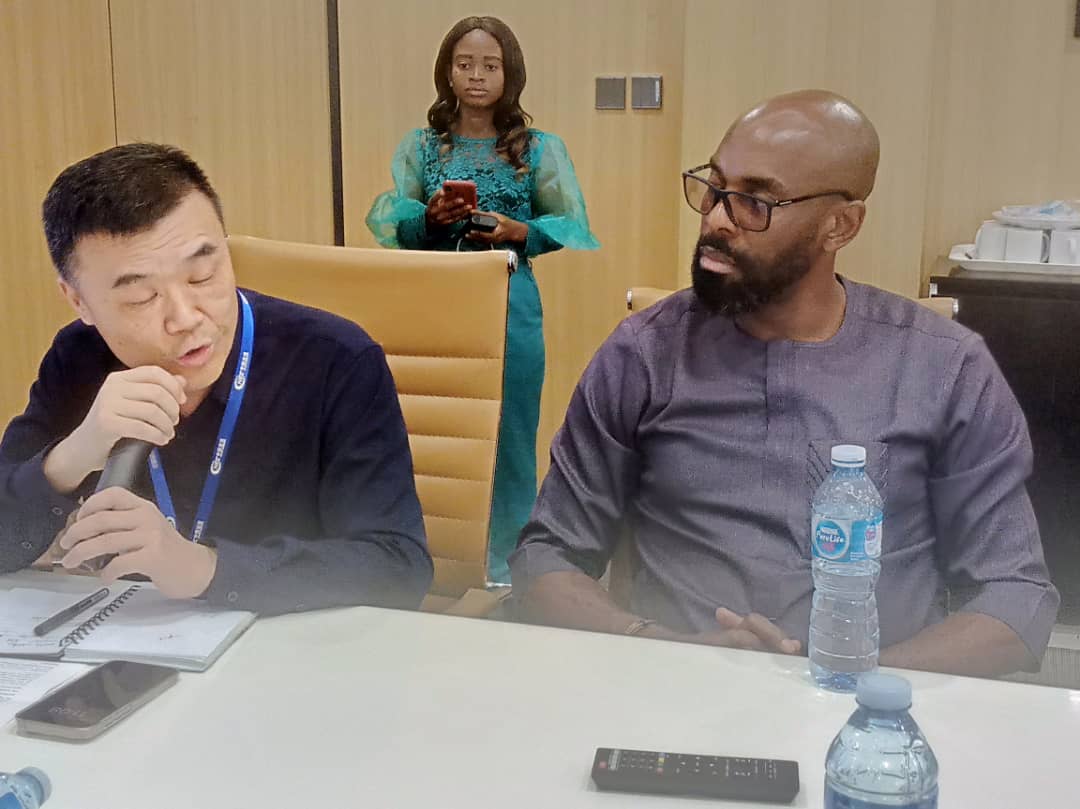
By Izuchukwu Ozoemena
Yang Xixiong, the Chief Operating Officer, Lekki Port has said the deepsea port which commenced operations in 2023 has come to place Nigeria in her rightful position as a shipping hub that has assumed her rightful position and relevance in regional and global economy.
The CEO who disclosed this in Lagos,Thursday, while rubbing minds with members of the press assured that the new port has stabilized and would, going forward,continue to raise the bar of relevance to international standards.
“We continue to push the envelope, set the bar higher to uphold our position as West Africa’s deepest sea port,” Xixiong announced.
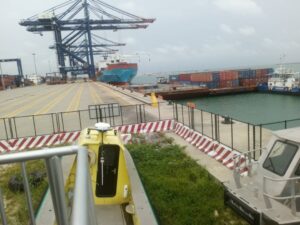
A section of critical facilities at the Lekki Deepsea Port.
“The result of our unrelenting commitment to world-class standards is visible in the gigantic footprints we are putting on the map of maritime trade in Africa, deploying technology, driving operational efficiency, and shaping regional trade,” he added.
Already, Lekki Port has commenced trans-shipment operations to some regional ports in West Africa such as Togo, Ghana and Côte d’Ivoire.
In his intervention, Daniel Odibe, Deputy Chief Operating Officer, who spoke further on the increase in trans-shipment capacity added that recently, Lekki Deepsea Port conducted a trial trans-shipment to Onne Port.
Odibe said, “We had our first trans-shipment operations in 2023, which is the first in the Nigerian economy.
Between January and June, 2025, the port processed 222,000 Twenty-foot Equivalent Units (TEUs) of cargo and has her hands steadily on the plough to jerk up the performance so as to achieve the targetted record of 500,000 TEUs by the end of the year, a development that reflects a growing confidence in the port’s ability to achieve maximum operational capacity as per international standards.
“Before now, countries like Togo, Ghana, and Côte d’Ivoire used to be the trans-shipment hubs for Nigeria-bound cargoes. You know what that means for our cargo? They spend more time coming to us. They incur more costs because they are double-handled in those trans-shipment hubs, all because Nigeria didn’t have a deep-sea port.
”The story is in our favour right now. We are now talking about international trans-shipment. We are now doing international trans-shipment to other West African countries such as Ghana, Côte d’Ivoire, Abidjan, Togo and Cotonou.
”Currently, you have ports like Warri, Calabar, Onne, and then we have inland ports like Onitsha and Burutu. Some of these ports, foreign vessels don’t go there because the draft is low. So the idea here is to have cargoes for those ports. That will open up economic opportunities in those areas.
“We did some trials last year with Onne. It had some challenges, but again, it was an eye-opener and we are looking at restarting that again this year in collaboration with the shipping lines and baggage operators.”
On cargo throughput volume, Odibe assured that cargo volumes are now gradually improving steadily despite initial hiccups arising from instability in the rate of the Dollar.
Currently, the port receives between 10-12 vessels every month. The record, he added, is steadily picking up.
“Volumes fell because of Naira depreciation and the removal of fuel subsidy; this caused a setback in our projection. As of 2023, when we started operations, we did 54,289 TEUs, and as of June of this year, we have done 222,000, and we are projecting 500,000 TEUs.”
Odibe also stated that the vessel turnaround time at Lekki Port currently stands at 48 hours as against one hour and 25 minutes for truck turnaround time, while cargo dwell time is 16 days.
Maritime Agencies
MAMAL 2025: MARAN Demands End to War Risk Premium, Set to Expose Maritime Fraud in Gulf of Guinea.
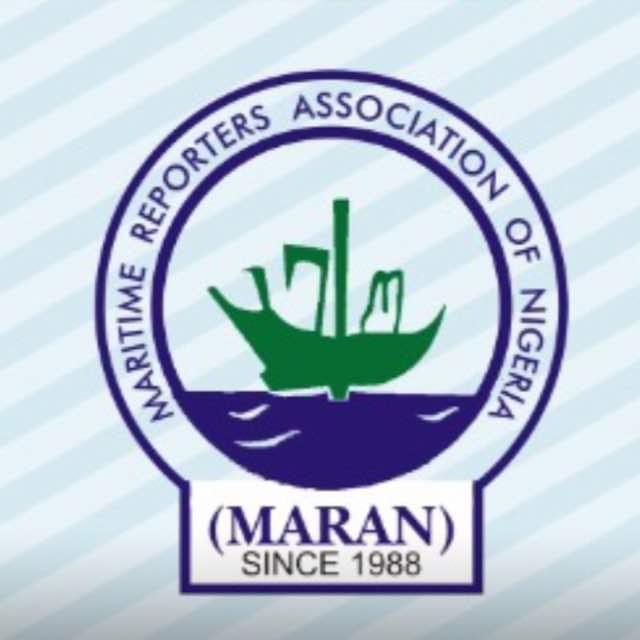
By Izuchukwu Ozoemena
Come August 28, 2025, the Maritime Reporters Association of Nigeria (MARAN) will host the 3rd edition of her annual Maritime Lecture (MAMAL) at the prestigious Eko Hotel and Suites, Lagos.
This year’s lecture will spotlight the ongoing international fraud perpetrated by foreign shipping lines under the guise of “War Risk Premiums” on vessels calling at Nigerian ports, aiming to draw the Federal Government’s urgent attention to the issue.
Speaking on the theme of MAMAL 2025 which is “Addressing the Burden of War Risk Insurance on Nigerian Maritime Trade,”MARAN President, Mr. Godfrey Bivbere, strongly condemned the war risk insurance, describing it as an international fraud burdening the economy of Nigeria and other developing countries in the Gulf of Guinea.
The extra war risk insurance (WRI) levied on Nigeria-bound vessels varies significantly. For instance, a very large crude carrier (VLCC) can incur a WRI surcharge of $445,000 per voyage, while a new container vessel may face a charge of $525,000 per voyage. Beyond this, some shipping companies such as Maersk, have introduced additional fees like a transit disruption surcharge, while others impose a war risk surcharge of $40-$50 per 20-foot container.
MARAN contends that these exorbitant charges are further strangulating Nigeria’s already-strained economy.
Also, despite Nigeria’s Minister of Marine and Blue Economy, Adegboyega Oyetola recently confirming that Nigeria has not recorded a single pirate incident in the past three years, the imposition of war risk premiums continues unabated.
Oyetola credits this peace in the Gulf of Guinea to the multi-billion naira Deep Blue Project, a robust maritime security initiative spearheaded by the Nigerian Maritime Administration and Safety Agency (NIMASA).
Despite these commendable efforts by the Federal Government, MARAN is concerned that foreign shipping lines continue to unjustly extract millions of dollars from Nigerian shipowners in the name of War Risk Insurance Premium, even though there are no demonstrable risks in the region.
In March 2025, Dr. Dayo Mobereola, Director General of NIMASA, met with a delegation from the Danish Ministry of Foreign Affairs, led by Kristin Skov-Spilling, where he passionately appealed to the international community to acknowledge Nigeria’s significant progress in securing its waters. He emphasized the critical need for a corresponding reduction in war risk insurance costs.
Dr. Mobereola stated, “The Nigerian government has demonstrated a strong commitment to maritime security, leading to nearly zero incidents of piracy and armed robbery in the Gulf of Guinea over the past four years. Despite this, vessels coming to Nigeria continue to pay high war risk premiums, which is unjustifiable given the improved security landscape.”
Speaking further on the upcoming MAMAL Annual Maritime Lecture 2025, MARAN President Godfrey Bivbere asserted that international shipping companies operating in Nigeria have shown “lackadaisical and complacent attitude towards the economic and social wellbeing of Nigeria as a nation.”
He explained that MAMAL 2025 aims to thoroughly examine the perceived threats, realities, and profound implications of persistent Extra War Risk Insurance (EWRI) on Nigeria’s maritime trade and the wider Gulf of Guinea (GoG).
Providing more details about the highly anticipated conference, which has consistently served as a crucial rallying point for all maritime stakeholders due to MARAN’s respected voice, Bivbere added:
”The Summit will also explore issues leading to the classification of the nation’s waters as high-risk zones, roles of classification societies like the Lloyds of London, the roles of core stakeholders like NIMASA, Nigerian Navy and other maritime and security operators.”
According to Bivbere, “The MAMAL 2025 is expected to draw over 500 key stakeholders, including maritime security experts, shipowners, terminal operators, international shipping lines, diplomats, insurers, regulators, and legal experts.”
-
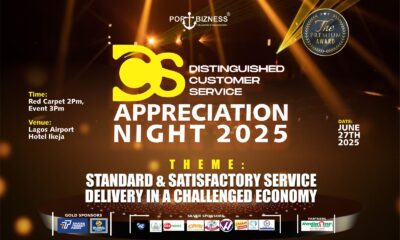
 Maritime Agencies2 weeks ago
Maritime Agencies2 weeks agoPORTBIZNESS Celebrates Excellence in Customer Service Delivery, Holds Special Awards Night
-

 Maritime Agencies3 weeks ago
Maritime Agencies3 weeks agoKebbi Customs Command Introduces Health Screening, Mandatory Sports To Ensure Work-life Balance
-

 Maritime Agencies1 week ago
Maritime Agencies1 week agoNPA Berths Nigerian-Owned Container Vessel,”MV OCEAN DRAGON,” To Boost Incountry and Regional Trade,
-

 Maritime Agencies3 days ago
Maritime Agencies3 days agoApapa Customs Revives Rail Haulage of Cargo, Shuts Three Bonded Terminals
-

 Maritime Agencies1 week ago
Maritime Agencies1 week agoHALF-YEAR REVENUE DISPOSITION: Apapa Customs Hits N1.38Trillion, Confiscates Prohibited Goods Worth Billions.
-
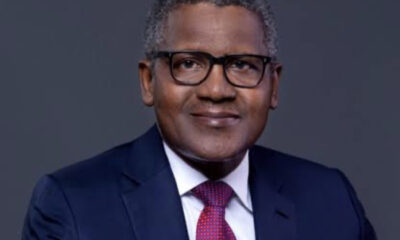
 Maritime Agencies4 days ago
Maritime Agencies4 days agoDangote Lauds NPA’s One-Stop Shop Committee, Donates Coaster Bus To Ease Operations
-
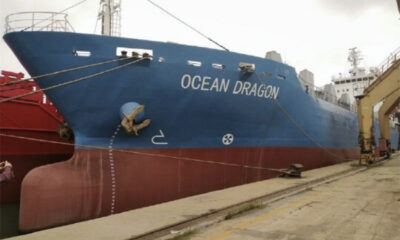
 Maritime Agencies1 week ago
Maritime Agencies1 week agoNIGERIAN PORTS AUTHORITY BERTHS FIRST WHOLLY NIGERIAN-OWNED CONTAINER VESSEL.
-
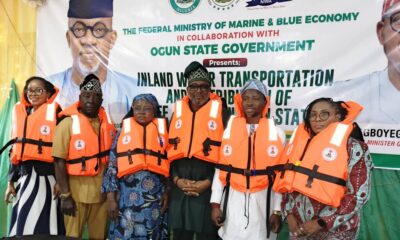
 Maritime Agencies3 days ago
Maritime Agencies3 days agoSAFETY ON WATER: FG Donates Life Jackets To Ogun State Government, Emphasizes Safety


























